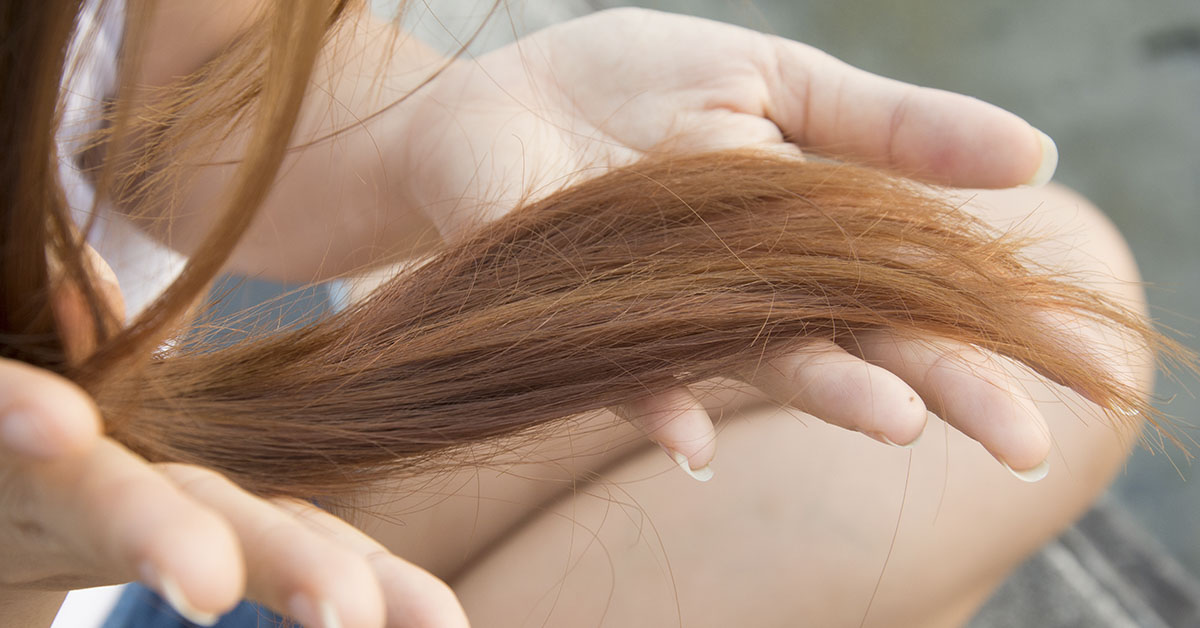Thyroid-related hair loss is a common concern that affects many individuals worldwide. On average, people shed up to 100 hairs daily from their scalp. However, for individuals with thyroid conditions, hair loss can be more pronounced, leading to noticeable hair thinning. This article explores the connection between hair loss and thyroid conditions, including the causes, symptoms, available treatments, and prevention methods.
What is Thyroid-Related Hair Loss and How Does it Happen?
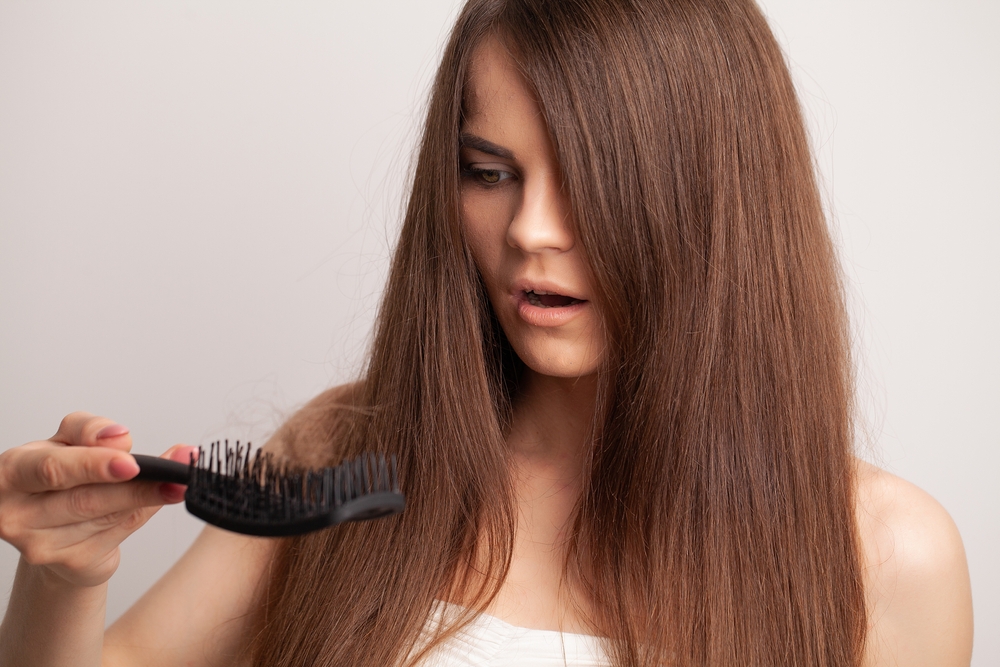
Thyroid-related hair loss refers to the excessive shedding and thinning of hair due to disruptions in the production of thyroid hormones, such as triiodothyronine (T3) and thyroxine (T4). The thyroid gland regulates the body’s metabolism and energy levels. When the thyroid gland is underactive (hypothyroidism) or overactive (hyperthyroidism), it can affect the normal growth cycle of hair follicles, leading to hair loss.1
Thyroid-related hair loss can occur due to several reasons. In hypothyroidism, the decreased production of thyroid hormones slows down the hair growth cycle, resulting in thinning hair. Additionally, the hair may become dry, brittle, and prone to breakage. In hyperthyroidism, the accelerated metabolic rate can increase hair shedding and finer hair texture.
Read More: 8 Medications That May Cause Hypothyroidism
Symptoms of Thyroid-Related Hair Loss:

Hair loss associated with thyroid conditions exhibits several characteristic symptoms, including:
- Diffuse Hair Loss or Thinning: Individuals may notice generalized hair thinning across the entire scalp. The hair may appear sparse and lack volume.
- Patchy Hair Loss: In some cases, hair loss may occur in specific areas of the scalp, leading to smooth and circular bald patches. This pattern of hair loss is often associated with an autoimmune condition called alopecia areata, which can coexist with thyroid disease.2
- Loss of Body Hair: Thyroid-related hair loss may extend beyond the scalp, causing the loss of body hair from regions such as the eyebrows. A unique symptom of hypothyroidism is the loss of hair on the outer edges of the eyebrows.
- Changes in Hair Texture: Thyroid dysfunction can alter the texture of the hair.3 In hypothyroidism, the hair may become dry, coarse, and more prone to tangles. In contrast, hyperthyroidism can lead to excessively soft, fine, and fragile hair.
Treatment and Prevention of Thyroid-Related Hair Loss:
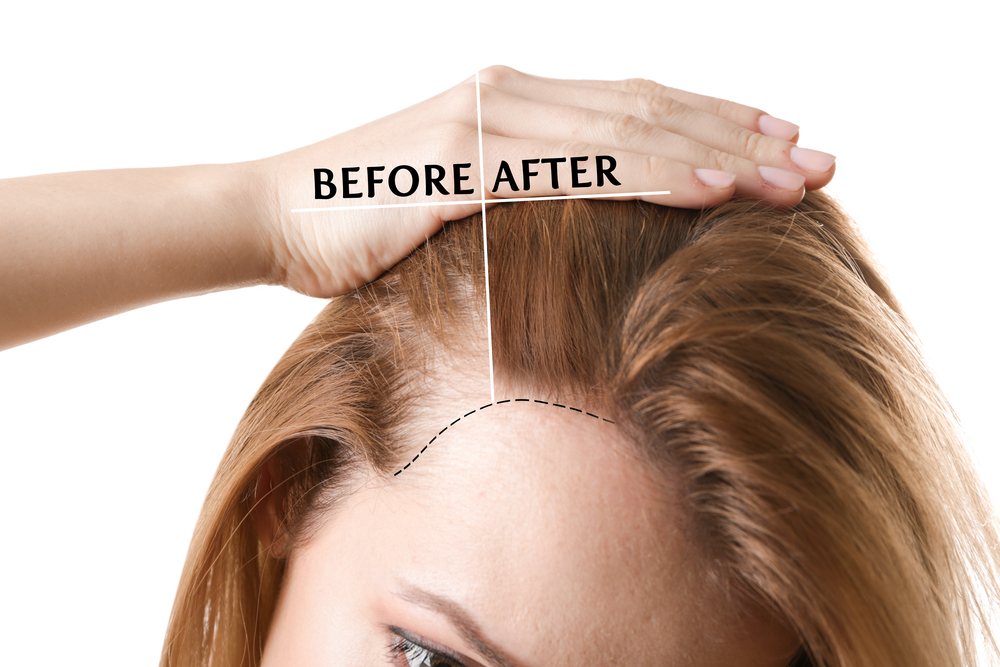
The treatment and prevention of thyroid-related hair loss involve addressing the underlying thyroid condition and adopting measures to promote hair regrowth and overall hair health.
Treating the Underlying Thyroid Condition: The primary approach to managing thyroid-related hair loss is through proper medication for the underlying thyroid condition. By restoring the balance of thyroid hormones, hair growth can be stimulated.4 It is essential to work closely with a healthcare professional to determine the appropriate medication and dosage. It may take several months of consistent treatment for visible hair regrowth to occur.
Medications to Promote Hair Growth:
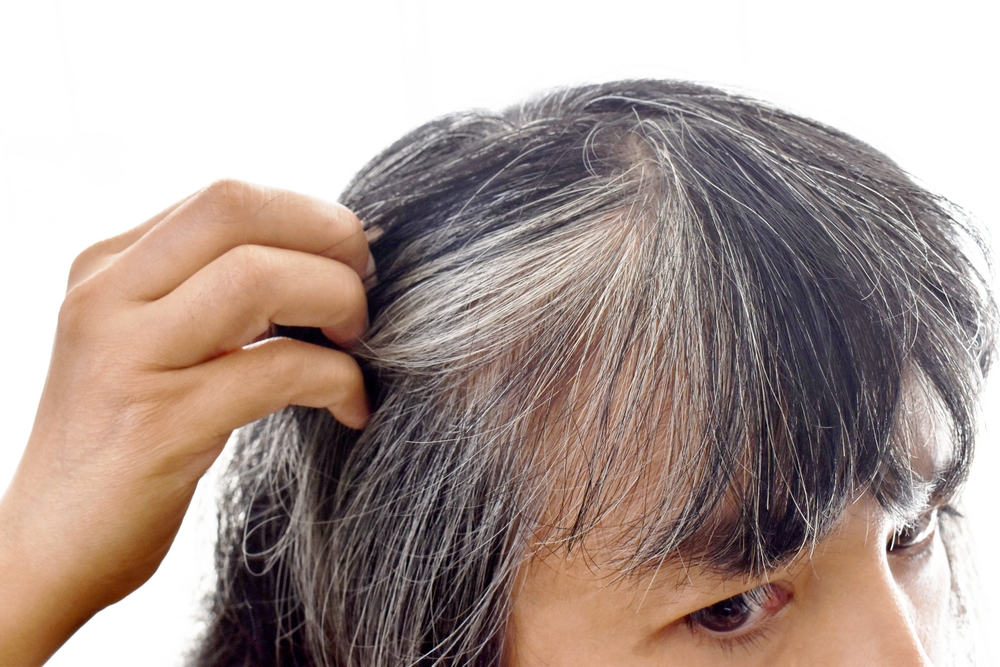
In addition to thyroid medication, healthcare providers may recommend specific medications to promote hair regrowth. Two commonly used medications are:
a. Rogaine (Minoxidil): Rogaine is a topical solution that can be applied to the scalp to stimulate hair regrowth. It is available over-the-counter and does not require a prescription.
b. Propecia (Finasteride): Propecia is an oral prescription medication primarily used to treat male pattern baldness. It is not suitable for use by women who are pregnant or considering pregnancy.
Read More: ‘My Doctor Told Me I Had a Cold, But It Was Thyroid Cancer. My Instincts Saved Me’
Nutritional Support:

A balanced diet plays a crucial role in maintaining healthy hair. Individuals with thyroid-related hair loss should focus on consuming a nutrient-rich diet that includes adequate protein, vitamins (especially vitamin D and biotin), and minerals such as iron and zinc. These nutrients are essential for promoting hair growth and preventing further hair loss. If necessary, healthcare providers may recommend supplements to address specific nutritional deficiencies.
Gentle Hair Care Practices:

To prevent further hair loss and promote overall hair health, individuals with thyroid-related hair loss should adopt gentle hair care practices. This includes:
- Avoid excessive heat styling and harsh chemical treatments that can damage the hair and lead to breakage.
- Using mild and nourishing hair care products that are suitable for the specific needs of the hair.
- Minimizing the use of tight hairstyles that pull on the hair, such as tight buns or ponytails, as they can cause mechanical damage to the hair follicles.
- Regularly conditioning the hair to keep it hydrated and minimize dryness.
Stress Management:

Stress can contribute to hair loss, so it is important to manage stress levels effectively.5 Engaging in relaxation techniques such as meditation, yoga, or regular exercise can help reduce stress and promote overall well-being.
Conclusion:
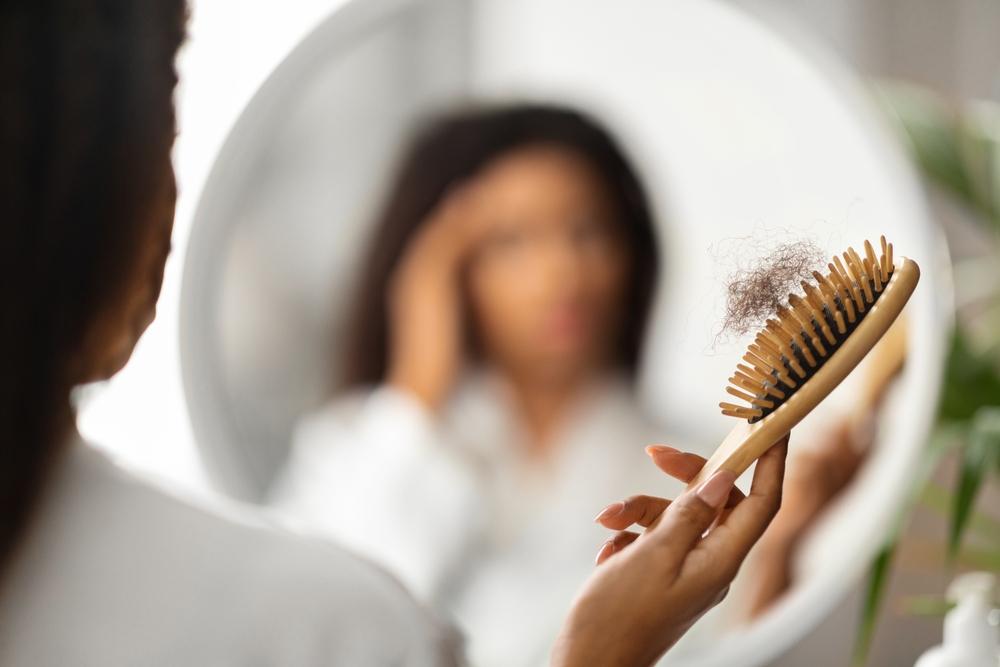
Thyroid-related hair loss can be distressing, but with proper diagnosis and treatment, it is often reversible. By addressing the underlying thyroid condition through medication, adopting healthy hair care practices, and ensuring proper nutrition, individuals can stimulate hair regrowth and maintain overall hair health. If you are experiencing hair loss and suspect it may be related to a thyroid condition, it is important to consult with a healthcare professional for an accurate diagnosis and personalized treatment plan. Remember, patience and consistency in treatment are key, as visible hair regrowth may take time.
Read More: 12 Million are Unaware They Have Thyroid Disease. Do You Know The Signs?
Sources
- “The Link Between Thyroid Disease and Hair Loss.” Very Well Health. Mary Shomon. July 10, 2021.
- “The Diagnosis and Treatment of Hair and Scalp Diseases.” Aerzteblatt. Wolff, H; Fischer, T W; Blume-Peytavi, U. 2016.
- “Hair loss and thyroid disorders.” BTF.
- “Is My Thyroid Condition to Blame for My Hair Loss?” Cleveland Clinic. August 21, 2018.
- ” Thyroid and Hair Loss: Symptoms & Remedies.” Health Central. Lisa M. Basile. July 19, 2022.
